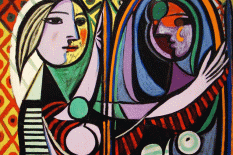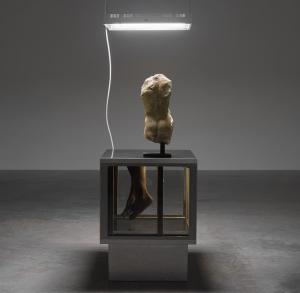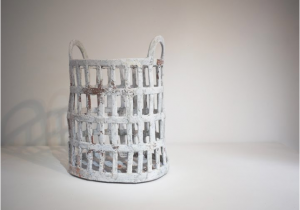Our intrepid intern, Lynne Nolan, returns with this sobering elucidation of a 'debilitating' but somewhat hidden affliction of our times, suffused with scientific data and telling anecdotes of sufferers: "Sufferers distort the comments and flattery of friends and family, as they believe they are lying to them to ease their upset." (Written in 2005)
Critique
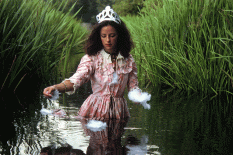
Ishmael Annobil dissects the inimitable photography of Clare Willmey; her genius for capturing flux; the continual, dynamic transfigurations of mind and body: "She trusts her subject to reveal itself, conscious of the potential for interplay between the subject and its environment. What often emerges is a vigorous tableau of the emotional and physical aspirations that lie below the surface."
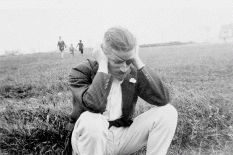
Ciara McArdle asserts, "For all his scathing of Ireland, Dublin and its culture and people, with Ulysses Joyce has painted a most humane picture of his characters. Their nobleness is precisely defined by their inability to emulate heroism, and the vast reservoirs of affection, admiration and compassion for the human race as a whole can be read between the lines of this vast novel."
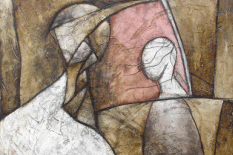
2007, Santiago de Chile. Alex Maccioni visits surrealism Gonzalo Peralta Godoy: "If your family were against the dictatorship in any way there was always the risk that your family would be arrested and sent away from the country. Gonzalo Peralta Godoy, a superb surrealist painter from Santiago, grew up in similar scenario. His mother was a Socialist and so his upbringing consisted of ducking amongst the shadows and moving from one place to another before pro-government supporters grew suspicious."

Academician Uttam Kokil proposes that, "Culturally responsible design considers the history, language, customs, habits, traits and behaviours unique to specific groups. Concepts and visual languages may be borrowed from one specific culture, yet they can hold different connotations for another culture. Good design must therefore consider cultural context so that ideas expressed are not misinterpreted..."
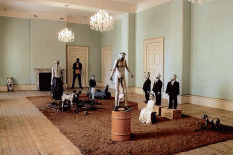
Ishmael Annobil reviews the groundbreaking Africa Remix: The Art of a Continent (2004): Ever since Benin sculpture rose from under looters’ beds to dominate the fine art discourse, international artists have seemed prone to reinvent the wheel, to surpass that redoubtable African ‘thing’. This may be because the Benin paradigm came to the West by way of social extrusion only, and not by open, honest display and acceptance of its philosophical and aesthetic status as a first spark..."
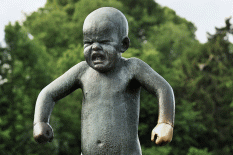
The Vigelands Park in Oslo, Norway, is the result of a unique contract between the sculptor Gustav Vigeland and the City of Oslo. In 1921, the artist agreed to donate all originals of previous and future artistic work to the city, as long as it would provide him with a place to live and work. He soon moved into a grand, red brick building overlooking the Frogner fields and donated the subsequent forty years of his life to the creation of a park quite unlike anything else.
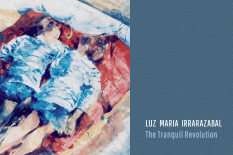
Alex Maccioni, our Latin America correspondent, pays a visit to artist Luz Maria, arguably Chile's only true pastoralist: "Tranquillity and peace are words that you just can’t avoid while in the company of Luz Marie and looking at her paintings. Her paintings are almost a reflection of her surroundings and character. The two children lying on a mat outdoor is one of many in her collection that depict casual leisure activities."
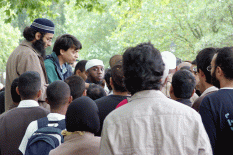
Ishmael Annobil visits Speaker's Corner in summer 2007 to check the 'mood' of the world: "If you strayed into Hyde Park’s famous Speakers Corner and had no knowledge of its history, you might mistake it for a mere religious parley suffused with jesters and cranks. Forgive me, but you’d be actually watching a sweet vestige of British democracy, and its inherent checks and balances, at work. It lacks perfection, its grates often, and it infuriates, but it still embraces all peoples and ideas."
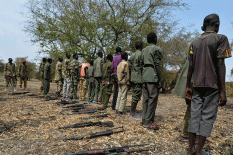
Ishmael Annobil retraces his steps to 80's Southern Sudan to establish the seeds of discord that that evolved into internicine strife, keeping the nation in turmoil, even after the secession and independence of Southern Sudan: "Darfur is the new Rwanda. The poorer relative paradigm is here again to test us, and the world is failing again. Could it be because we don’t have a collective nostalgia for peace? Or, are Africa’s own endemic divisions to blame."

